Freedom is a London-based anarchist website and biannual journal published by Freedom Press which was formerly either a monthly, a fortnightly or a weekly newspaper. It is the world's oldest surviving anarchist publication.

Freedom Press is an anarchist publishing house and bookseller in Whitechapel, London, United Kingdom, founded in 1886.
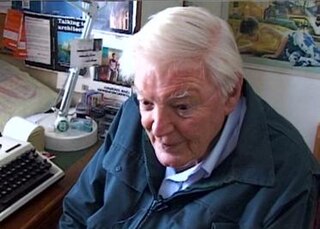
Colin Ward was a British anarchist writer and editor. He has been called "one of the greatest anarchist thinkers of the past half century, and a pioneering social historian."
Donald Rooum was an English anarchist cartoonist and writer. He had an extremely long association with the Freedom newspaper in London, to which he regularly submitted his 'Wildcat' comic strips.
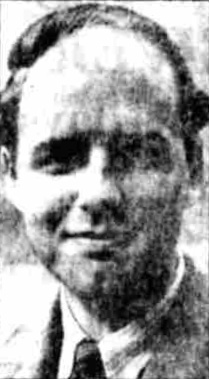
Vernon Richards was an Anglo-Italian anarchist, editor, author, engineer, photographer, and companion of Marie-Louise Berneri.

Anarchy was an anarchist monthly magazine produced in London from March 1961 until December 1970. It was published by Freedom Press and edited by its founder, Colin Ward with cover art on many issues by Rufus Segar. The magazine included articles on anarchism and reflections on current events from an anarchist perspective, e.g. workers control, criminology, squatting.

Peace News (PN) is a pacifist magazine first published on 6 June 1936 to serve the peace movement in the United Kingdom. From later in 1936 to April 1961 it was the official paper of the Peace Pledge Union (PPU), and from 1990 to 2004 was co-published with War Resisters' International.
Margaret P. Arrowsmith was a British author and peace campaigner. She was a co-founder of the Campaign for Nuclear Disarmament (CND) in 1957.

Philip Richard Sansom was a British anarchist writer and activist.
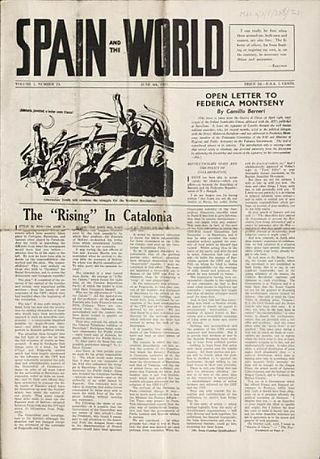
Spain and the World is the name of an anarchist publication initiated in response to the Spanish Civil War and the struggles of the CNT-FAI carrying analysis of events as they unfolded. In Britain, the Freedom Paper had begun to peter-out. Thomas Keell had attempted to close the paper down as a reflection of the poor state of the British anarchist movement. Though there was a brief dispute which resulted in two rival 'Freedoms', both had run their course by the early 1930s. The fortnightly publication, Spain and the World had been started by Francesco Galasso and Vernon Richards in 1936 to compete with News Chronicle and New Statesman who were supportive of Soviet policy in Spain. "After the first issue, Spain and the World became a Freedom Press publication, with Tom Keell and Lilian Wolfe" according to Rooum. The paper would go on to revive the fortunes of the Freedom paper with input from important activists like Marie-Louise Berneri and Frank Leech.

Alfred Marsh was an anarchist-communist and long-time editor and stalwart of the newspaper Freedom.
A workers' council, or labor council, is a type of council in a workplace or a locality made up of workers or of temporary and instantly revocable delegates elected by the workers in a locality's workplaces. In such a system of political and economic organization, the workers themselves are able to exercise decision-making power. Furthermore, the workers within each council decide on what their agenda is and what their needs are. The council communist Antonie Pannekoek describes shop-committees and sectional assemblies as the basis for workers' management of the industrial system. A variation is a soldiers' council, where soldiers direct a mutiny. Workers and soldiers have also operated councils in conjunction. Workers' councils may in turn elect delegates to central committees, such as the Congress of Soviets.

Anarchist Seeds Beneath the Snow is a 2006 book about anarchism and left-libertarian thought in Britain written by David Goodway and published by Liverpool University Press, then republished in 2011 by PM Press.
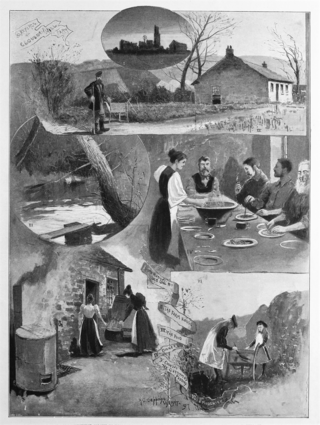
Clousden Hill Free Communist and Co-operative Colony was an anarcho-communist commune from 1895 until 1898 in Forest Hall, North Tyneside, Tyne and Wear, England. The commune was part of the back-to-the-land movement, operating a 12-acre farm under collective ownership and democratic control.
Anarchism in Croatia first emerged in the late 19th century within the socialist workers' movement. Anarchist tendencies subsequently spread from neighboring countries, taking root in a number of cities throughout the country. The movement experienced repression from a succession of authoritarian regimes before finally reemerging around the time of the independence of Croatia.

Housmans is a bookshop in London, England, and is one of the longest-running radical bookshops in the United Kingdom. The shop was founded by a collective of pacifists in 1945 and has been based in Kings Cross, since 1959. Various grassroots organisations have operated from its address, including the Gay Liberation Front, the Campaign for Nuclear Disarmament, and London Greenpeace. Housmans shares its building with its sister organisation Peace News.

John Christopher Hewetson was a British anarchist physician, writer and newspaper editor. During the Second World War he was an editor of the anarchist newspaper War Commentary, which saw him imprisoned on three occasions. From the 1940s onwards he was active in advocating for freely available contraception and abortions.

War Commentary was a British World War II era anti-militarist anti-war anarchist newspaper published fortnightly in London by Freedom Press from 1939 to 1945. The paper was launched as a successor to Revolt! and Spain and the World and was opposed to World War II along anti-capitalist and anti-state lines.
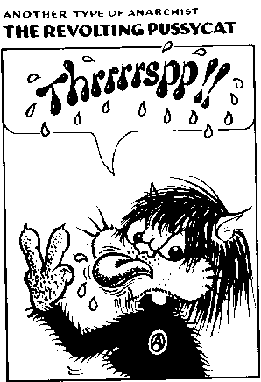
Wildcat was a long running comic strip drawn by the cartoonist Donald Rooum which was published in the anarchist newspaper Freedom.














